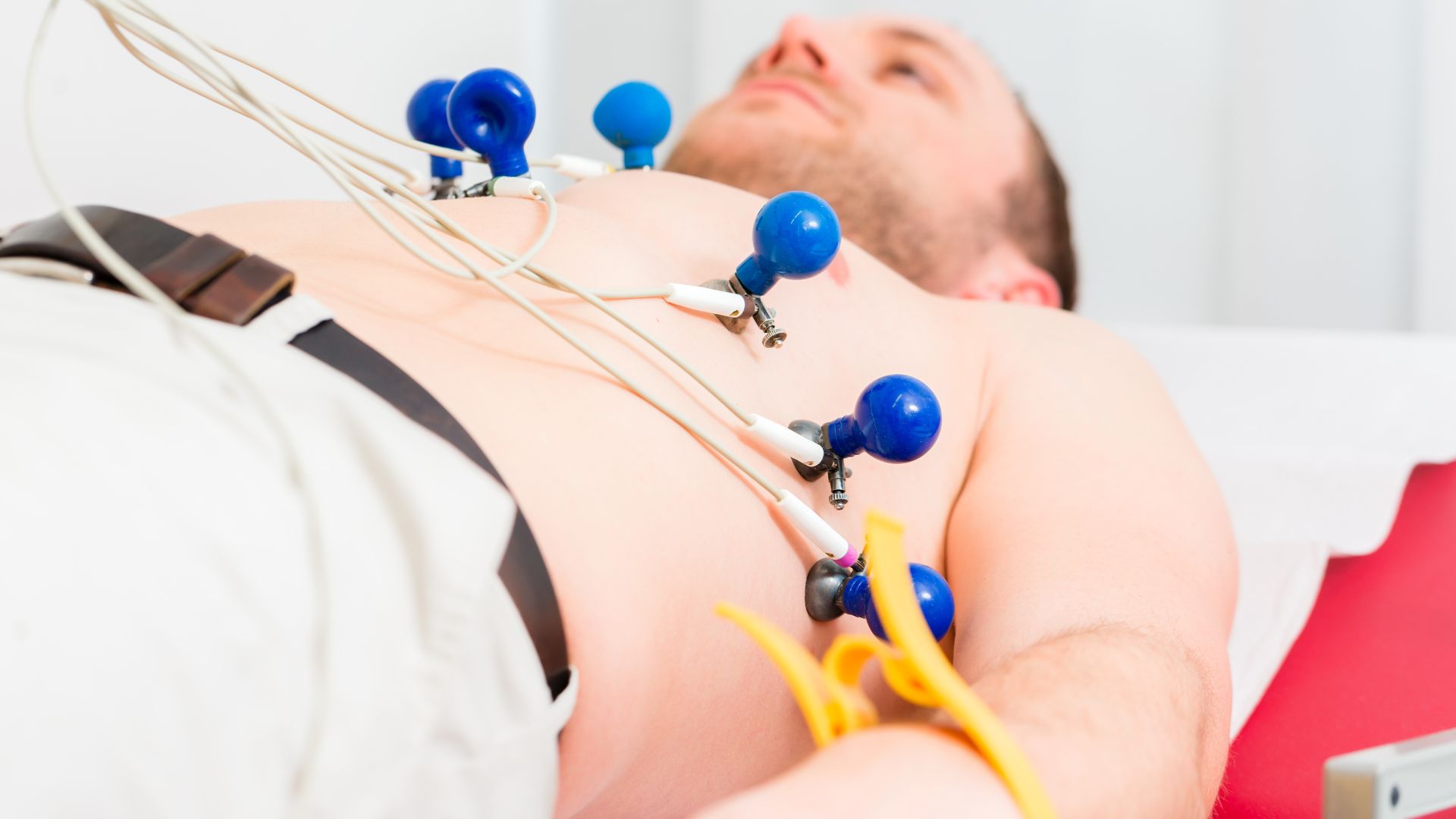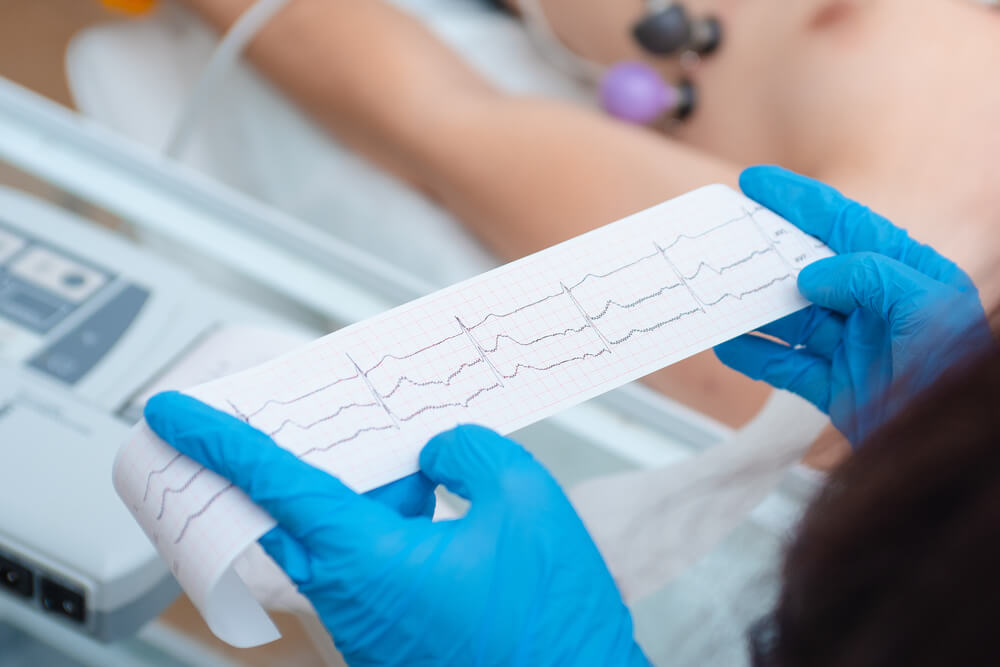Did you know that the female heart is different from the male heart?
That’s why we dedicate the month of March to the female heart at Puls Cardiology Center and offer a 10% discount on cardiology examinations
- Basic heart examination
- Total heart examination
- Basic examination for Atherosclerosis
This is a great opportunity to encourage you to take care of your heart health, to love and nurture yourself every day, and to make it a priority. There are objective medical reasons for this, which will be discussed further by the cardiologists at Pulse Cardiology Center – the first private center focused on the treatment of cardiovascular diseases in Serbia. Puls Cardiology Center is based on the model of the leading global chain of cardiology centers, CCN (Cardiologie Centra Nederland), which is also a partner of the centers in Serbia.
FEMALE HEART
Female and male hearts differ in many characteristics, which is why cardiologists should have a different approach to their treatment and the therapies they apply.
There is often talk about the female heart being more sensitive and fragile, and this is now a scientifically proven fact.
DIFFERENCES BETWEEN FEMALE AND MALE HEARTS

Dr Goran Popvić – cardiologist
The female heart weighs 60 grams less.
The female heart is smaller than the male heart. On average, the weight of the female heart is around 118 grams less compared to the male heart.
The female heart beats faster.
The female heart beats faster than the male heart. For example, the average heart rate for men is 70-72 beats per minute, while for women, it is 78-82 beats per minute. This can lead to palpitations, shortness of breath, and difficulty breathing, so these symptoms should be given more attention in women.
The female heart is more prone to blood clot formation.
The female heart has a higher risk of developing blood clots compared to the male heart. This difference is even more pronounced in women who take contraceptive pills and smoke.
The female heart is less resilient after a heart attack.
The female heart is less resilient and less resistant to damage following a heart attack. Compared to men, women have a higher risk of death after a heart attack.
The blood vessels of the female heart are thinner.
The blood vessels in women’s hearts are thinner, and on average, they are about 1 millimeter thinner than the blood vessels in men. This makes any procedure on them, as well as on the heart itself, more challenging.
The blood vessels of the female heart are more sensitive.
The blood vessels in the female heart are more sensitive and prone to constriction and narrowing. Temporary constriction in small vessels can cause chest pain, which actually originates from the heart and is not easy to diagnose.
Symptoms of heart disease are not easily recognizable.
In women, heart diseases do not have as obvious symptoms as in men. For example, EKG and stress tests often show normal results. Therefore, it is always important to consider a doctor’s suspicion of a problem and the potential presence of risk factors and not give up, but instead carry out additional tests accordingly.
Occurrence of atypical symptoms.
A diseased female heart often exhibits atypical symptoms. While chest pain is more prominent in men, women more commonly experience shortness of breath, difficulty breathing, weakness, fatigue, and bloating. Such differences can make diagnosis more challenging.
More sensitive to side effects.
The female heart is more sensitive to the side effects of medications compared to the male heart. Additionally, the female heart has a higher predisposition and risk of developing rhythm disorders compared to the male heart.
DISEASES OF THE MALE AND FEMALE HEART ARE NOT TREATED IN THE SAME WAY

Dr Svetislav Mališić – cardiologist emphasizes that cardiovascular diseases were once thought to primarily affect men, but it has been proven that women are also significantly affected by heart diseases. Therefore, female patients need to be treated with a different approach compared to men.
The prevention of cardiovascular diseases in women is, to some extent, similar to that in men. It involves maintaining a heart-healthy diet, engaging in regular physical activity, avoiding smoking, and paying attention to blood pressure, cholesterol levels, blood sugar levels, and maintaining optimal body weight. However, some women are at an increased risk of developing heart disease.
Women who experienced complications with blood pressure during pregnancy or had diabetes while pregnant are at an increased risk of developing heart diseases in the future. Women with autoimmune diseases or certain infections are also at an elevated risk. These women should have regular check-ups with a cardiologist to monitor the health of their hearts.
The main symptom of a heart attack in women, like in men, is chest pain. However, women may also experience other symptoms that sometimes mask the chest pain. These symptoms include shortness of breath, fatigue, weakness, and any sudden symptoms or pain in the area between the jaw and abdomen should be a cause for concern and a warning sign.
EIGHT KEY CAUSES THAT MOST COMMONLY AFFECT THE FEMALE HEART

Doctor Aleksandar Cicović – interventional cardiologist
Although we worry more about breast cancer, it is known that we actually die more from heart disease, and the reasons for that are numerous.
According to the latest data from the Institute of Public Health of Serbia “Dr Milan Jovanović Batut,” cardiovascular diseases cause the death of 23,788 men and 28,314 women annually.
Heart disease is a more common cause of mortality in women compared to all other diseases, despite women being more concerned about breast cancer.
Diabetes – Diabetes significantly increases the mortality rate from myocardial infarction in women compared to men. The risk of fatal ischemic heart disease is even 50% higher in women with diabetes compared to men. Women have a more significant inflammatory factor, diffuse atherosclerosis of coronary arteries, more significant small vessel disease, and often receive less aggressive diabetes therapy.
Hypertension – Even borderline or moderately severe hypertension causes more cardiovascular complications in women compared to men.
Nicotine – Smoking is particularly harmful to younger women as it increases the risk of ischemic heart disease by 60% compared to men. The combination of factors such as advanced atherosclerosis and a tendency towards smoking-induced vascular thrombosis is responsible for a six to eight times higher risk of myocardial infarction in female smokers compared to non-smokers.
Poor diet – Lipid profile in women is influenced by hormonal status and changes throughout life. Younger women have lower levels of LDL (bad cholesterol) and higher levels of HDL (good cholesterol) compared to men of the same age. As women age, the level of LDL cholesterol increases and the level of HDL cholesterol decreases, thereby increasing the risk of heart disease.
Early menopause – The presence of estrogen in younger women is a protective factor against cardiovascular diseases. Women who experience early menopause, before the age of 40, have a life expectancy that is two years shorter than women with normal or late menopause. Many studies have examined the effect of hormone therapy in postmenopausal women as a preventive measure against cardiovascular diseases, but they have not confirmed this hypothesis. They have even shown an increased cardiovascular risk, especially in the first year after starting the therapy.
Obesity – Various studies have confirmed that obese women have a seven times higher risk of heart disease compared to overweight men. Additionally, the combination of obesity and diabetes is particularly risky in women.
Sedentary lifestyle – Physical inactivity is more common among women than men. Since there is a clear association between physical activity and coronary diseases in women, it is evident why they are more vulnerable.
Stress – Stress, negative emotions, as well as anxiety and depression, are more strongly linked to the risk of heart disease in women than in men. The combination of work-related stress and family-related stress is associated with a more significant occurrence of heart disease in women.
Pulse Cardiology Center guarantees the highest quality standards, fast service based on the all-in-one principle, and a personal and dedicated approach to its patients. The center is equipped with state-of-the-art diagnostic equipment, including the most modern angiography suite in the region, a CT scanner, and a day hospital.





